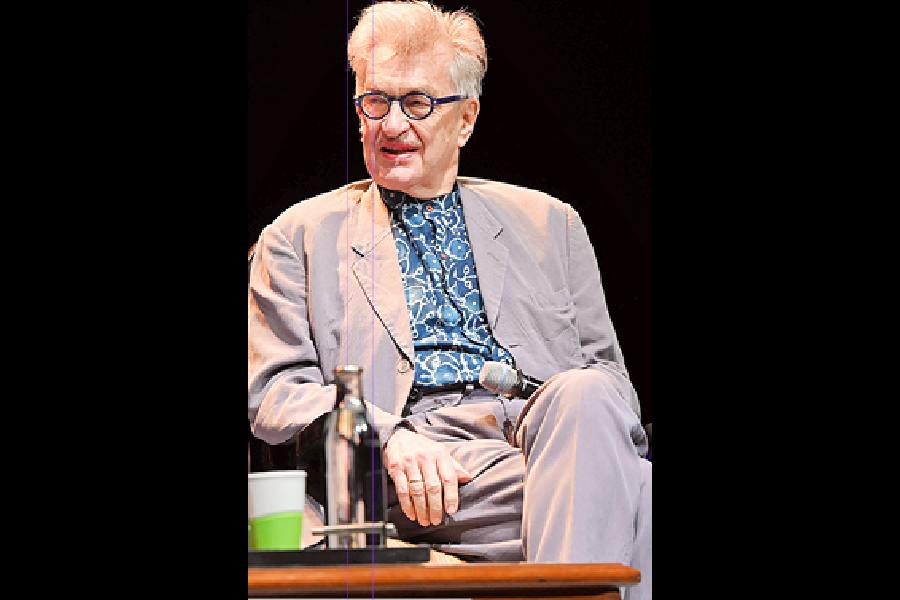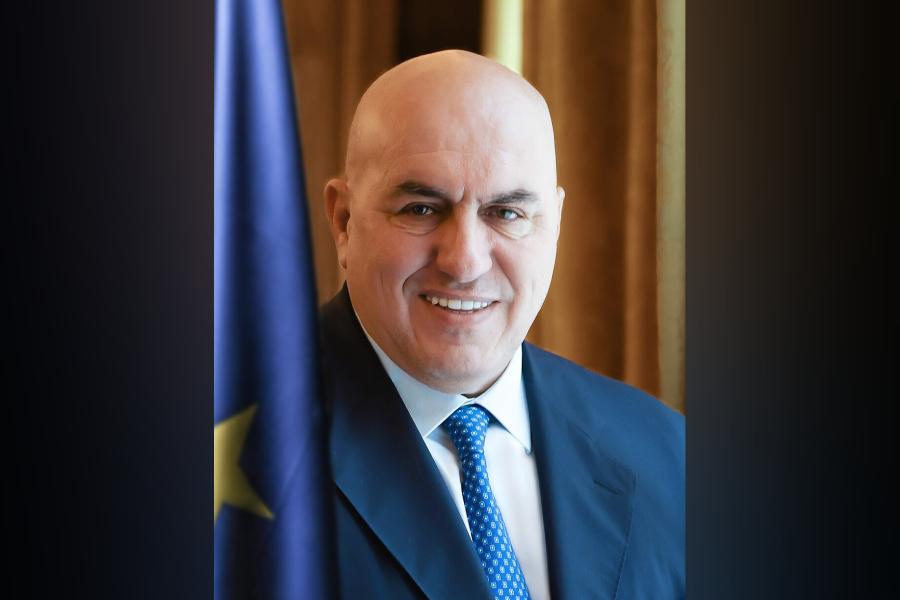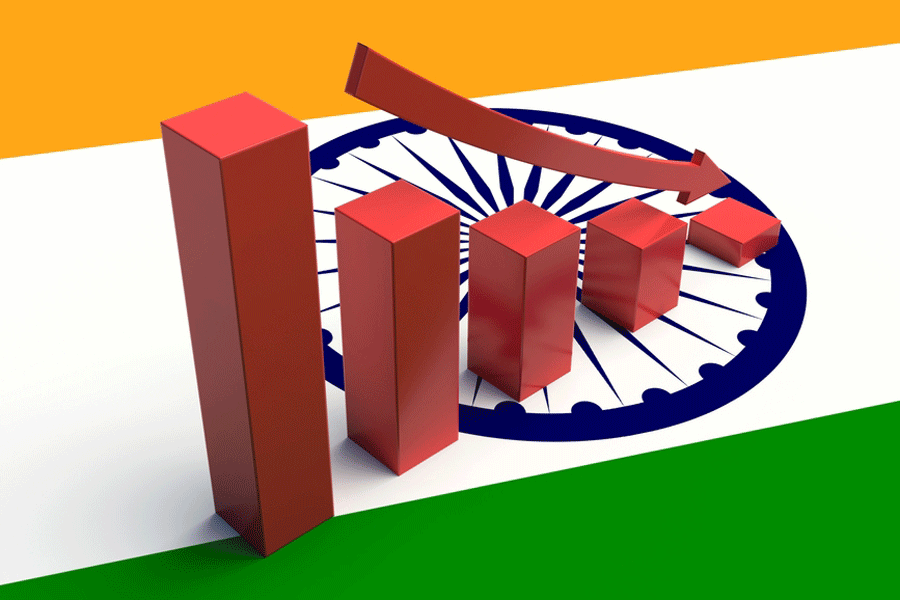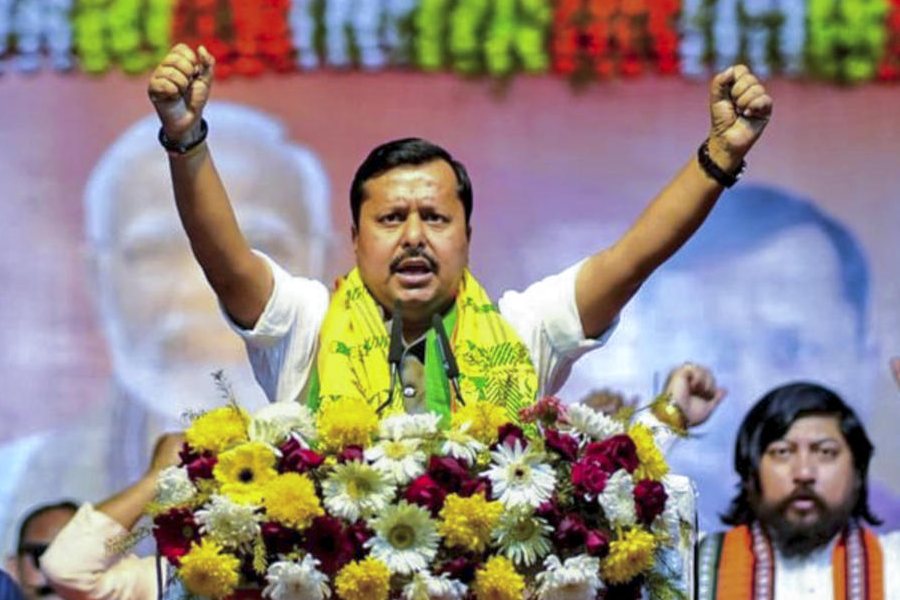A celebrated German filmmaker known for his poignant depiction of loneliness spoke of a different kind of loneliness on Monday.
“Today, there is a whole new form of loneliness, a very sick form. Even if instruments tell us they provide us with social media, we become more and more asocial, more and more estranged from first-hand experiences. I think even films have to start addressing this subject in a different form. There is a new disease, a deadly form of loneliness, which is digital loneliness,” said Wim Wenders, known for classics such as Paris, Texas; Wings of Desire and Perfect Days.
“In today’s world of OTT platforms and TikTok, where we have the world on a screen in our pocket, how do you see the future of the big screen?” asked a man in the audience. The question drew a detailed reply from the filmmaker, who has won multiple awards, including prizes from Cannes, Venice, and Berlin film festivals and a BAFTA award.
“We live in an era of enormous changes.... Storytelling is disappearing. Instead of storytelling, we are now having story-selling. We are used to dealing with every image as information. Movies have also become information. We have handed our memories to that thing, computer or phone. Cinema, of course, is part of that change. For a whole new generation, movies are a form of information and no longer a form of storytelling,” he said.
“If you see a film on your mobile phone, you see something else. Movies no longer have the innocence of storytelling. We are all losing the patience for storytelling. Because a story needs time. We start looking at movies as just another source of information. That changes the entire ball game,” said Wenders.
Wenders is on a five-city debut India trip. He arrived in Calcutta via Mumbai and Thiruvananthapuram and will visit Delhi and Pune in the days to come.
On Monday, he helmed a “masterclass” at a packed GD Birla Sabhaghar. He was in conversation with Shivendra Singh Dungarpur, director of the Film Heritage Foundation, the organisers of Wenders’ trip, before taking questions from the audience.
Wenders said he was delighted to see a full house on Monday and during the screening of his films at Nandan.
The masterclass was scheduled to begin at 6pm. A long queue had formed outside from at least 5pm. Many without passes pleaded with the organisers to let them sit on the floor. The audience included some popular faces from the Bengali screen, stage and music industry.
The auditorium has around 650 seats. “We had to place another 50-odd chairs,” said a volunteer.
“I am amazed at how many people in India still go to see movies in theatres. That is almost a dream come true for somebody who lives in Europe where theatres are facing a very hard time because the pandemic has helped propel audiences away, out of theatres,” Wenders said.
Calcutta has not been immune to such changes. Covid, aided by the rise of OTT, has bled many single-screen movie theatres to death in Calcutta and the districts.
The audience is used to seeing web series’ much more than films, he said.
“Series is another form of storytelling. In the way it is consumed, it reinforces the idea that images are meant to be consumed. Storytelling or giving yourself into stories is a different attitude than consuming. Consuming is the enemy of storytelling. We live in that age where cinema has to face all of that,” said Wenders.
But he also had a word of hope.
“I think cinema has a lot of power. It has proven so in its 130 years. Cinema also has a healing power. Sometimes, I feel, we have to rely on the healing power of theatre experience and movies as a form of storytelling to take us back into a different realm than the overload of information that we are exposed to.... Friendship has changed its meaning. Now, people have a million friends but when they need one, there is nobody left because they are all on the mobile phone,” he said, as the audience erupted in a loud applause.
Wenders recalled meeting Satyajit Ray at the 1973 Berlin Film Festival, where the latter’s Ashani Sanket (Distant Thunder) was screened.
“I was a young man who just made his fourth film. Ray was in the lobby of the Berlin film festival. Nobody was surrounding him. I thought this was my chance to meet him. With a beating heart, I approached him... We spent 15-20 minutes during which he answered all my questions. I had seen Distant Thunder. To my great joy, it won at the festival,” he said.
The Film Heritage Foundation is organising Wenders’ India trip in association with the Wim Wenders Stiftung (Wim Wenders Foundation) and in collaboration with Goethe-Institut/Max Mueller Bhavan.











